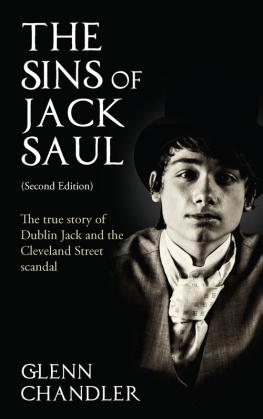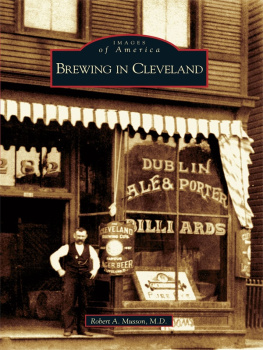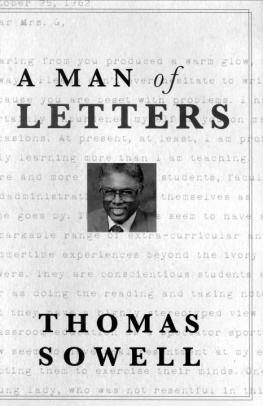Opinions expressed herein are those of the author and not the publisher.
Frisky, industrious black squirrels are a familiar sight on the Kent State University campus and the inspiration for Black Squirrel Books, a trade imprint of The Kent State University Press
www.KentStateUniversityPress.com
Cataloging information for this title is available at the Library of Congress.
Over the two years that it took to research and write this book, I was helped by many people. Id like to thank, in no particular order, Latundra Billups, Shawn Morris, Tanja Doss, Vanessa Gay, Gladys Wade Thomas, Lori Frazier, Cuyahoga County Prosecutor Rick Bombik, John Parker, Cleveland City Councilman Zack Reed, Ray Cash, Renee Cash, Assad Sam Tayeh, Debbie Madison, Melvette Sockwell, Cavana Faithwalker, Leander Thomas, Leona Davis, Tressa Garrison, JaOvvoni Garrison, Roosevelt Lloyd, Robert Harris, Karen Clemons, Florence Bray, Antonia Dozier, Barbara Carmichael, Adlean Atterberry, Art McKoy, Melanie GiaMaria, Rufus Sims, Steve Miller, Marie Kittredge, Christine Panchur, Treasa Mays, Laura Bozell, Kathy Cornell, Clark Broida, Inez Fortson, John Hunter, Jim Allen, Christine Shobey, Donald Smith, Yvonne Williams-McNeill, Bobby Dancy Sr., Joanne Moore, and Fawcett Bess.
Much gratitude to the Cleveland Police Department, particularly Lt. Richard Durst, Sgt. Dan Galmarini, Sgt. Ronald Ross, Deputy Chief Ed Tomba, and Chief Michael McGrath.
Thanks also to Michelle Pallo, Dr. James Knoll IV, Lori James-Townes, Dr. Phillip Resnick, Dr. Cathleen Cerny, Ed Gallek, Rebecca McFarland, Dr. Diana Goldstein, Walter Bansley III, Renee Hotz, Tom Sheeran of the Associated Press, former Cuyahoga County Coroners Dr. Frank Miller III and Dr. Elizabeth Balraj, and the Plain Dealers Stan Donaldson, Rachel Dissell, Marvin Fong, Dave Andersen, and Jo Corrigan.
And finally, a special thanks to Will Underwood, director of the Kent State University Press, and his talented teamMary Young, Christine Brooks, Susan Cash, and their colleagues.
September 22, 2009
In the dull gold haze of sunset, faint shadows lay across the yards and houses of Imperial Avenue in Clevelands Mount Pleasant neighborhood. The evening is warm. At most houses, windows have been opened to catch the occasional breeze. Residents are sitting on their porches, alone or in pairs. Their muted conversations and the infrequent passing cars are the only street sounds at this hour.
Like most of the homes in the neighborhood, the colonial at 12205 Imperial was constructed in the 1920s as a duplex. Cream with brown shutters, the house has living quarters on the first and second floors. A double-decker porch, spanning the width of the house, faces the street. The third floor, originally an attic, has been converted into a small apartment.
Since the summer of 2005, the large house has only been occupied by one person: Anthony Sowell. His neighbors, most of whom know him only as Tone or Tony, consider him friendly yet reservedperhaps even a bit odd. On some evenings, he can be seen sitting in the darkness of his second-floor porch silently watching the neighborhood.
The porch is empty tonight. On the unlit second floor, the windows have been closed and the blinds drawn. A single plastic lawn chair sits in the middle of the bare living room. A hallway leads from the living room to a small bedroom, where thirty-six-year-old Latundra Billups is facedown on the wood floor, desperately clawing at the electrical cord that Tone has tightened around her neck.
Lanky, but deceptively strong, Tone is lying on top of her, pulling steadily and forcefully on the ends of the cord. Although Latundra has managed to slip her fingers between the cord and her neck, she is unable to ease the crushing pressure. Her fingers, trapped beneath the ligature, are now painfully squeezed against her throat.
For the past hour, Tone has subjected Latundra to a brutal sexual assault while strangling herat first with his hands and then with the electrical extension cord. He is methodical and sadistic: several times during the attack, he tightened the noose until she neared unconsciousnessand then eased the pressure to revive her.
Believing that Tone will eventually release her, Latundra, a single mother of five, has somehow willed herself to remain composed.
But now he jerks the cord, constricting her airway, and Latundra understands that he has more than rape on his mind; he intends to kill her. Terrified, adrenaline fueling her, she bucks and rolls her body, attempting to dislodge him. As she thrashes on the floor, jagged splinters from the worn hardwood pierce her legs and torso.
Desperate now, she tries to pull the cord away from her neck, but her energy is depleted. Her body spasms, and then she stops resisting. Tone pulls the noose even tighter. He holds the pressure until at last she goes limp. Just before she passes out, Latundra prays that she will see her children again.
Several hours earlier, Latundra, a petite, medium-complected black woman called Lala by her friends, had been walking home from a relatives house when she saw Tone walking in the same direction. He invited Lala to come back to his place for a drink.
Lala first met Tone in March 2007 when she moved to Imperial Avenue with her three youngest children. Shed been introduced to him by his live-in girlfriend at the time, Lori Frazier.
Lala had known Frazier since the two were in their teens. They hadnt seen much of each other over the past decade, but when they discovered they were Imperial Avenue neighbors in 2007, they also found they had a common interest: crack cocaine.
Lala had smoked crack a half-dozen times with Frazier and Tone, either at her own house or on the third floor of his. In late 2007, after Frazier moved away from Imperial Avenue, Lala continued to party with Tone on occasion. When she had an urge to get high, shed make what she called a pit stop at his house. Shed tell her children she was going to the corner store, then dash to Tones for a quick fix.
But when Tone invited her to his house on that late afternoon in September 2009, she was initially hesitant. In recent months, shed heard disturbing rumors that hed been physically abusive to several women who had partied with him. One of the women, an acquaintance of Lalas, said that Tone had held her hostage in his house for nearly an entire day, raping her repeatedly. The woman hadnt reported the attack to the police, explaining to Lala that she was reluctant to testify against Tone because her family would learn that she was a drug user.
Lala was fairly certain that her friend had told the truth about being attacked. But the opportunity to smoke crack outweighed her fear of being alone with Tone. And, rationalizing, she reminded herself that hed always been nice to her. On the walk to his house, she suggested that they purchase crack. Tone gave her fifty dollars and waited for her on a street corner while she went to a nearby house.












 BLACK SQUIRREL BOOKS
BLACK SQUIRREL BOOKS